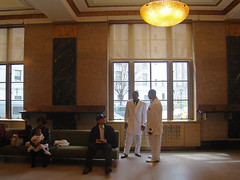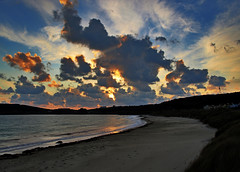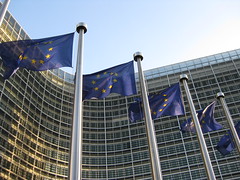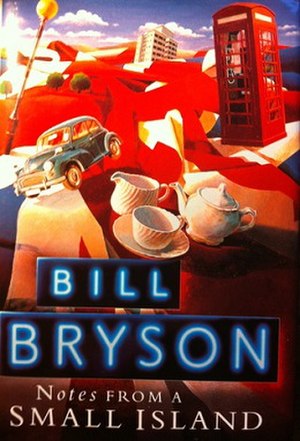I just watched this video, which a friend of mine sent me.
It’s a good effort although the voiceover artist sounds like he’s commentating the 3.15 at Haydock. It’s far too fast.
However it is incorrect to say that Northern Ireland is a country. It is a ‘province’ (in fact the only province of the United Kingdom. England and Scotland aren’t countries either. They are former countries. Wales was never a country – the principality of Wales was attached to England in the 14th century. (That is one explanation why none of them have country-code Top-Level domains).
It is correct that ‘Great Britain’ is not a country.
But it used to be.
That was between 1707 – 1801 when it was known as the Kingdom of Great Britain. This is probably why people in the USA refer to ‘Great Britain’ when they mean the UK – it was ‘Great Britain’ when they left!
The United Kingdom first came into being in 1801.
So although one of the Crown’s Dominions for a long time before 1801 and for 25 or 25 years after 1922, most of Ireland was only part of the UK for 121 years.
The grubby way the UK was created in 1801 is highlighted at this marvellous resource at http://www.actofunion.ac.uk/actofunion.htm
The four constituent parts of the 21st century United Kingdom are often referred to as ‘nations’. (They clearly are not countries on the dictionary meaning of the term as the UK is indeed a unitary state). This is much in the same manner the United States refers to the Indian Nations (but the Indian Nations seem to have more powers that the four nations of the UK).
More specifically they are known as the ‘Home Nations‘ (this commonly seen in the context of rugby – a game related to American football but for real men who see no need to wear padding and helmets, unlike their namby-pamby cousins across the ocean).
It is also incorrect to say that ‘Irish’ refers exclusively to the Republic or its citizens, although the term ‘Irish Citizen’ always has the meaningg of a citizen of the Republic of Ireland.
People from N. Ireland are also ‘Irish’. The adjective ‘Irish’ does not refer to the country, it refers to the island and the people, although depending on context, this can unambiguously to something uniquely associated with the Republic (e.g. ‘the Irish Ambassador’). Most commonly, however,’Irish’ is an geoethnic adjective, just like the term ‘English’.
Even today, people who were born anywhere in Ireland (whether the birth was in the Six Counties that remained in the United Kingdom after partition or elsewhere in Ireland are all entitled to citizenship of the Republic of Ireland if one of their parents is :-
- a British Citizen
- an Irish citizen; or
alternatively
- they were born before 2005 (to parents of any nationality).
The northern Irish (note the capitalisation) are all entitled to British citizenshp if one of their parents is :-
- a British Citizen
- an Irish citizen; or
alternatively
- they were born before 1981 (to parents of any nationality)
- they were born after 1981 (to parents of any nationality who are settled in the UK
British citizenship itself is a concept that was only created in 1981. As you will see, most people from North are entitled to dual citizenship although many people prefer one or the other, depending on their cultural background and that of of their forebears.
Furthermore, anyone who was born in what is now the Republic before 1948 may be a ‘British Citizen’ if they were formerly a ‘British Subject (Citizen of the UK and Colonies)’, or if not, may have rights to register as a British Subject (and become a citizen after 5 years residence in the modern-day UK – e.g. north of the border or elsewhere in Great Britain, or the Crown Dependencies).
Incidentally, it is possibly worth mentioning that although ‘Northern Ireland’ is a perfectly normal and legitimate term to use (it means the Six Counties), the formerly common English expression ‘Southern Ireland’, which had currency in the language from 1922 but dropped out of use the 1970s/80s except among older people, is probably regarded as faintly offensive , due to its Imperial overtones, and therefore best avoided.
‘British Isles’ is a geographic term which includes the whole of the island if Ireland.
That is to say it means ‘Great Britain, Northern Ireland,the Isle of Man the Channel Islands & the Republic of Ireland’. It is a term that has fallen into desuetude and understandable disfavour in the Republic although in very common use in the rest of the British Isles. So on weather reports where elsewhere the expression ‘British Isles’ would be used, an expression such as ‘Ireland and Great Britain’ might be heard instead.
‘British Islands‘ is a legally precise term. It is defined in statute as being ‘the United Kingdom (of Great Britain and Northern Ireland), the Channel Islands, and the Isle of Man‘ (that is to say, the ‘British-Isles-but-not-including-the-bit-that-doesn’t-have-a-Queen- anymore’).
Alderney and Sark (the two other autonomous parliamentary democracies within in the British Islands) which weren’t mentioned in the video at all, were once, without any particular authority for the proposition, considered to be dependencies of the island of Guernsey (itself a Crown Dependency).
But that was pretty much the Imperialistic view as seen from London or St Peter Port. It is more correct to regard Alderney and Sark as Crown Dependencies in their own right. They, however, are part of the Bailiwick of Guernsey (an Elizabethan era construct, which today functions like a customs union between Alderney, Guernsey and Sark, taking their place as equal members of the Bailiwick — although it often seems like an unequal partnership due to the comparative sizes of the three islands).
It is not quite correct either to say that the British Overseas Territories were previously known as ‘Crown Colonies’. In fact they were previously the British Dependent Territories (they were colonies before that).
Most colonies ceased to exist as such in 1981 (the last Crown Colony was Hong Kong. This became an Special Autonomous Region of the People’s Republic of China in 1997).
It’s interesting, entirely accurate, and equally irrelevant to state that Virginia is another example of a Crown Colony. (The term is of merely historical interest and should be avoided.)
A lot of what the commentator says about Crown and Commonwealth is not exactly accurate either, but essentially the reality position is that the (Imperial) Crown was a single indivisible entity until 1931 when it intentionally cut up into a number of pieces and that the Commonwealth are those equal and independent nations whose subjects owe allegiance to (their cut-up-bit of) the Crown.
That convenient theory breaks down on the accession of Mozambique and Rwanda to the Commonwealth, and the Commonwealth is now something else and defines itself as ‘a voluntary association of 54 countries that support each other and work together towards shared goals in democracy and development’. But Commonwealth Citizens still often have special privileges in other Commonwealth nations — for example the right to vote.
If you want to know more, Google (as ever) and Wikipedia are your friends.







